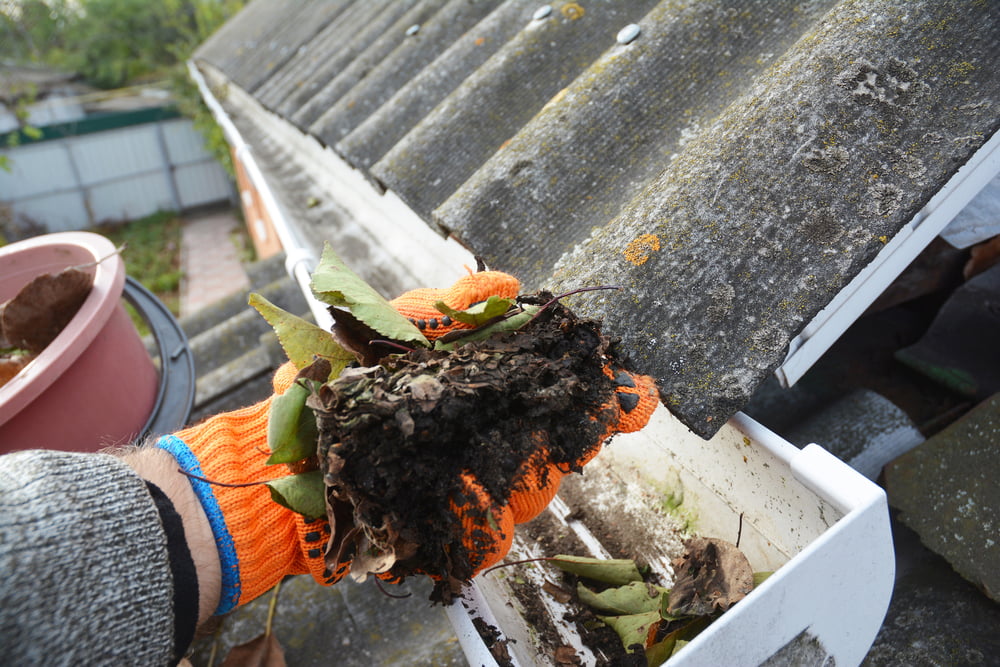Updated 2025 by Andrew Mackintosh
Property Maintenance 101 – Care For Your Property NOW and Avoid BIG Problems When You Sell
Property maintenance can be the thorn in the side of owning a property. There will always be something that needs to be done around the house to keep it well-maintained. From mowing the lawn to pruning the gardens or cleaning out the gutters, the list can seem endless. To prevent you from feeling overwhelmed by all that needs to be done around a property, regular maintenance can ensure big problems don’t occur in the future.
Regular maintenance, easily completed all year round, can ensure your property is in good condition – especially if you choose to sell your house in the future.
Walk around your property – inside and out
One of the best ways to keep on top of property maintenance is to do a visual inspection both inside and outside your home. Keep an eye out for peeling paint, cracks, broken windows, warped weatherboard and even chips in render which require immediate attention to be fixed. Fixing visual problems as soon as they are noticed will ensure further damage doesn’t occur, which can ultimately cost more in the long run. Weatherboards, in particular, need attention. You can learn more about weatherboards here.
Clear gutters, down pipes and storm water drains
Cleaning the gutters is an important yearly chore that often gets forgotten as it’s often out of sight and out of mind. However, when a rain event comes Cleaning the gutters is one of those chores that often gets forgotten – out of sight and out of mind. However, when a rain event comes through in summer, you may be reminded how important it is to keep the gutters clear of debris when you have a waterfall situation around the house and your very own moat. Water in gutters can also cause damage to your roof and eaves.
Spring is an ideal time to put on the gloves and remove leaf debris from the gutters. Once the gutters are cleaned, use a hose to help remove any stuck debris. If the hose isn’t strong enough, you may require a plumber to blast all the stormwater pipes so they are free from blockages.
Book a termite inspection
Depending on your location, a termite inspection is worth considering. This inspection can assist in detecting termite infestations or offer advice to prevent future infestations.
Infrared inspections can locate moisture in walls, which can be attractive to termites. Avoiding a yearly termite inspection can leave your property vulnerable to infestation. Book a yearly inspection and ensure treatments are kept up-to-date to prevent your house from becoming a termite magnet.
Check for leaks around the home and get them fixed ASAP
The termite inspection can also provide insight into moisture around the bathroom. Often, an infrared inspection can show moisture behind a shower, which could mean you have a leaking pipe or cracked waterproof membrane that can lead to water seeping into the walls and floors of your bathroom.
Any leaks in the home should be fixed as soon as possible. Major bathroom leaks will require investigation. Checking for drips on taps around your home will also help you ensure you don’t receive an unexpected high water bill, and you won’t be wasting precious water down the drain.
Check your hot water unit
Hot water units should also be inspected yearly, involving checking that there are no leaks on the connections or leaks from the hot water unit tank itself. All valves should be checked and tested by a plumber. This is a maintenance tip that doesn’t get acted upon until there is no hot water. A general check can prevent a bigger issue from occurring in the future.
Check for sewer blockages
The grated drains outside your house should be free from debris. You can easily remove any debris or matter that may block a grated drain. Regularly inspect the overflow relief gully in your yard to ensure it’s not overflowing with sewerage or has a high water level. This could be a sign of a blockage in the main sewer pipes and will require a plumber to unblock.
Maintain septic systems
If your property uses a septic system, it’s important to do an annual check to ensure gardens are pruned around the tank to allow plumbers to service the system. A yearly inspection can ensure the right sludge levels are correct and the system is working as efficiently as needed. Septic systems need to be pumped out every 3 -5 years. This may be required more frequently if there are a lot of people living in the property.
Painting
We all know how a fresh coat of paint can make a property look brand new, but it can be a painstaking process to complete. The house exterior requires painting every 10 years and possibly more often depending on where the property is located.
Clean solar panels
Solar panels should be cleaned at least twice a year. The panels will accumulate a fine film of dust and dirt that can reduce their capacity by up to 30%. There are solar panel cleaning companies that can do this for you. Alternatively, you can clean each panel with a window cleaner yourself, but make sure the panels are turned off before you clean each one and always use a harness when on the roof.
Check and fix broken roof tiles
Storm season can cause havoc to tiled roofs. Hail and wind damage can cause tiles to break. When this occurs, it’s important to get the tiles replaced as soon as possible. Allowing the broken tiles to sit on your roof can cause water damage, which will be costly to fix in the future.
Clean filter and service air conditioning unit
Whether you have a ducted or split system air conditioner, the filters should be cleaned every 6 months or more frequently if they get dirty with dust. A yearly service is important to ensure the system works when you need it. As a rule of thumb, Autumn and Spring are the best times to get your air conditioning unit serviced, as it can be difficult to book a service during peak times of demand in Summer and Winter (for reverse cycle units).
Smoke Detectors
Smoke alarms should be dusted or vacuumed regularly and tested quarterly by pressing the middle button, with many following the guidelines of changing the batteries yearly on April 1. In Queensland any old, broken or expired smoke alarms must be replaced by interconnected photoelectric smoke alarms. The interconnected smoke alarms must be either hardwired (installed and certified by a licensed electrician) or be powered by 10 year NON-REMOVABLE batteries.
Since 2021, homeowners selling their home have been required to install or update smoke alarms to interconnected domestic photoelectric smoke alarms prior to sale. From January 2027 Queensland laws will require ALL homes to be equipped with interconnected photoelectric smoke alarms.
The benefits of a regular home maintenance schedule
Keeping in check with a regular property maintenance schedule will ensure your property is maintained all year round. The added benefit is, if you decide to sell your property in the future, you won’t have an overwhelming list of tasks to tackle in a short period of time. It can also prevent a loss of sale if a maintenance problem causes a buyer to withdraw their offer. For example, if the pre-purchase termite inspection finds termites on your property. It’s a headache you certainly want to avoid in the future.

